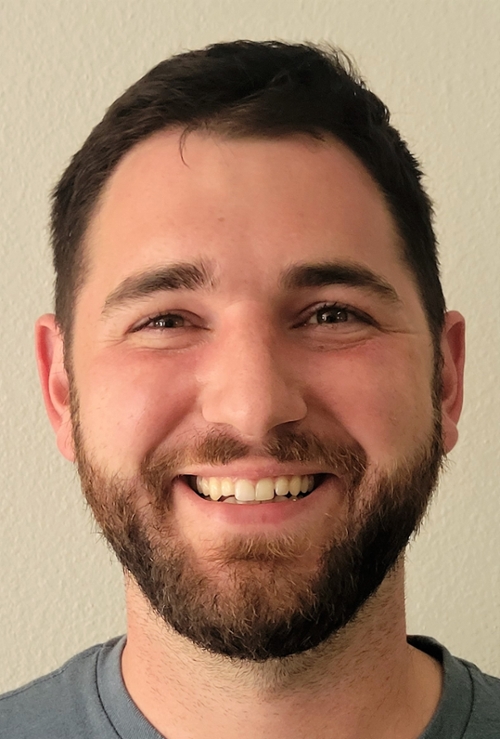Alumni Awards


Alexander Greig '16 - Distinguished Alumni

So, what does the host institution of the Southwest National Primate Research Center do with a colony of retired chimpanzees? If you are the Texas Biomedical Research Institute (Texas BioMed) in San Antonio, you hire Alexander Greig, a man who gives his heart and soul to the animals he works with. As an enrichment specialist, Alexander looks after the psychological and physical well-being of the large colony of the highly complex and intelligent animals. His responsibilities include coordinating and distributing daily enrichment activities while conducting behavioral research. Funded by a grant from the Institute, Alexander researched and implemented shade structures to protect the animals from the Texas heat. He also works collaboratively with scientists and institutes nationwide to establish and employ best practices in the field.
Before graduating magna cum laude from Texas A&M University-San Antonio with a B.S. in biology, a B.A. in psychology, and a minor in chemistry, Alex interned at the Barshop Institute for Longevity and Aging, housed at the University of Texas Health Science Center San Antonio. (UTHSCSA). While conducting undergraduate research with non-human primates, he helped developed a novel cognitive test that provides researchers with a tool to quantify executive function in non-human primates, especially related to the areas of aging, dementia, and Parkinson’s studies, where decline in executive function is predicted to be prevalent.
After graduation, Alexander continued working at UTHSCSA in a behavioral biology lab within the Department of Psychiatry. It was there he used rodent models and psychopharmacological techniques to investigate the behavioral and biological mechanisms of substance abuse and addiction. He assumed his current position with Texas BioMed in 2018 and is one of only nine professional behaviorists affiliated with the Southwest National Primate Center, one of seven flag-ship primate centers established and funded by the National Institutes of Health and one of the largest primate laboratories in the world. Describing his work, Alexander says, “Every day is an incredible challenge. These animals are strong-willed and they have very diverse personalities. I would go so far as to call many of them my “friends.”
Beyond his day-to-day responsibilities, Alexander has presented his research at multiple national scientific conferences and is an active member of the American Society of Primatologists. A dedicated scholar, who recently earned a Master of Science in Biology-Zoo Science from West Liberty University, he has attained all three certifications offered by the American Association for Laboratory Animal Science, including the highly sought after and hard to attain certification of Animal Laboratory Technologist. Since 2014, Alexander also has served as event coordinator for the Science Olympiad, an annual event hosting 300+ middle and high school students interested in STEM fields in which they compete in various science activities to qualify for the State Olympiad.
While Alexander’s laser like focus on and passionate love of science leaves little time for recreational or outside pursuits, his favorite hobby is spending time adventuring outdoors with his wife and two-year-old daughter. He also delights in discussing his work. “That’s what we biologists live for,” he explains. “We live and breathe the scientific method and we sacrifice our free time and often our sanity for our species of choice.”
